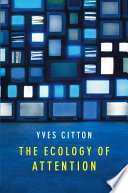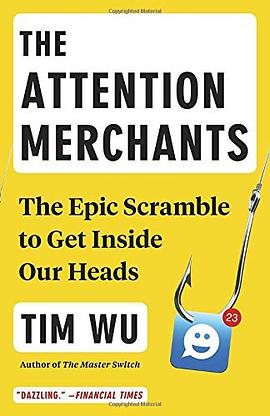The Ecology of Attention 谷歌图书
作者:
Yves Citton
John Wiley & Sons
2017
- 05
Information overload, the shallows, weapons of mass distraction, the googlization of minds: countless commentators condemn the flood of images and information that dooms us to a pathological attention deficit.
In this new book, cultural theorist Yves Citton goes against the tide of these standard laments to offer a new perspective on the problem of attention in the digital age. Phrases like paying attention and investing ones attention attest to our mistaken belief that attention can be conceptualized in narrow economic terms. We are constantly drawn towards attempts to quantify and commodify attention, even down to counting the number of 'likes' a picture receives on Facebook or a video on YouTube. By contrast, Citton argues that we should conceptualize attention as a kind of ecology and examine how the many different environments to which we are exposed from advertising to literature, search engines to performance art condition our attention in different ways.
In a world where the demands on our attention are ever-increasing, this timely and original book will be of great interest to students and scholars in media and communications and in literary and cultural studies, and to anyone concerned about the long-term consequences of the profusion of images as well as digital content in the age of the internet.
In this new book, cultural theorist Yves Citton goes against the tide of these standard laments to offer a new perspective on the problem of attention in the digital age. Phrases like paying attention and investing ones attention attest to our mistaken belief that attention can be conceptualized in narrow economic terms. We are constantly drawn towards attempts to quantify and commodify attention, even down to counting the number of 'likes' a picture receives on Facebook or a video on YouTube. By contrast, Citton argues that we should conceptualize attention as a kind of ecology and examine how the many different environments to which we are exposed from advertising to literature, search engines to performance art condition our attention in different ways.
In a world where the demands on our attention are ever-increasing, this timely and original book will be of great interest to students and scholars in media and communications and in literary and cultural studies, and to anyone concerned about the long-term consequences of the profusion of images as well as digital content in the age of the internet.

